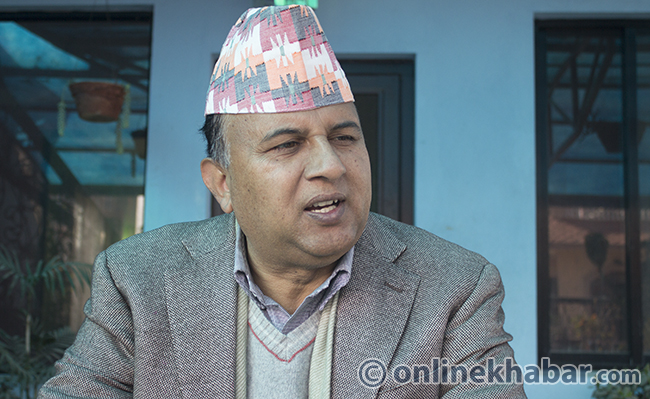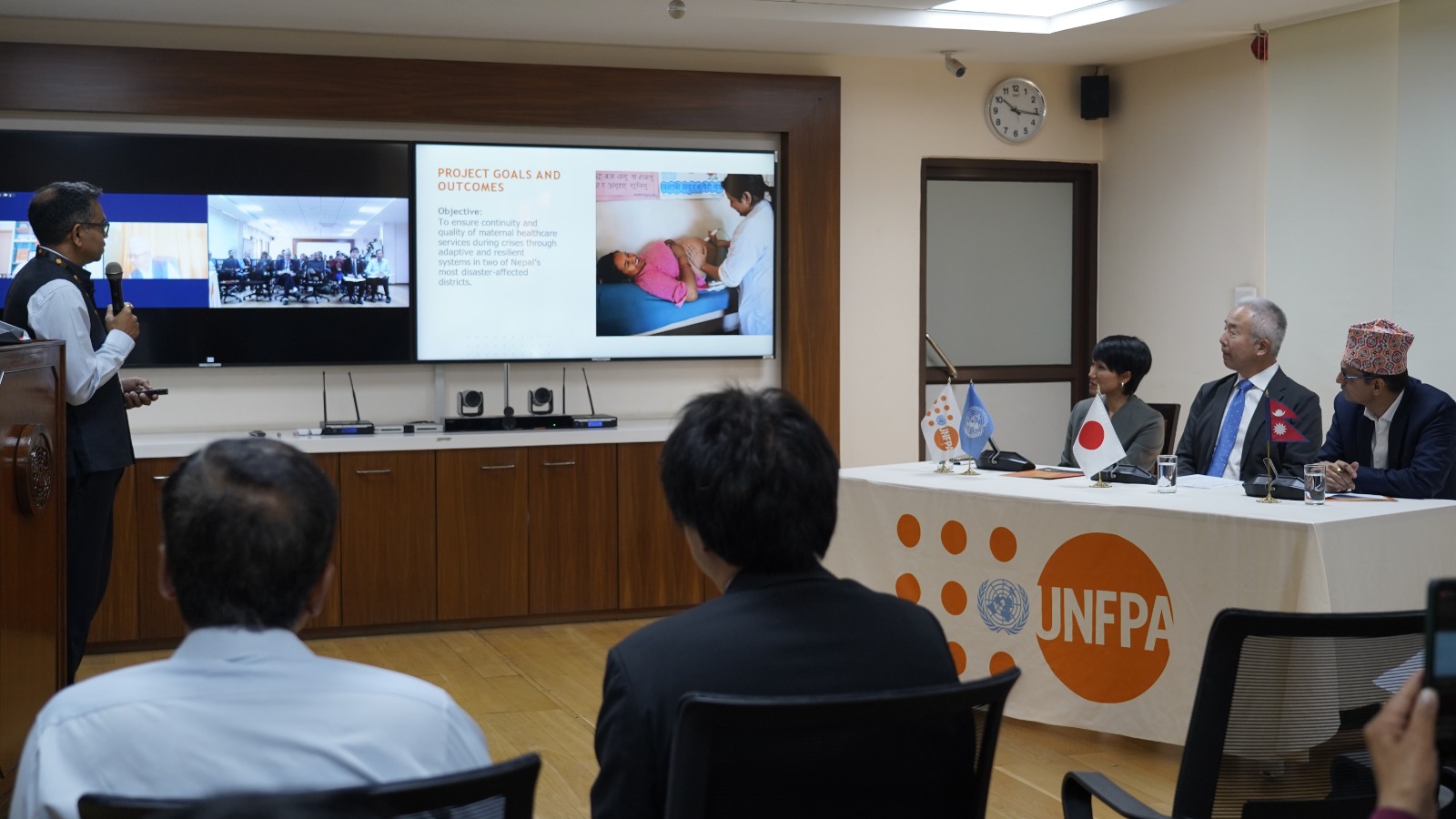
Prime Minister KP Sharma Oli has announced that his government will conduct local elections in November 2016. The last time local elections were conducted in Nepal was in 1997. Although major political parties have said they are in favour of holding elections at the grassroots, they had not taken any concrete step towards it. Onlinekhabar caught up with UML leader Shanker Pokhrel, considered a close ally of Prime Minister Oli to talk about the government’s plans, and obstacles it is anticipating.
The government has announced that local elections will be held in November. Will the present government conduct it or a new one will do it?
The constitution itself says that an interim local election shall be held. Even in the past, political parties had time and again agreed that election to local bodies were necessary. That is why the government included local elections in its policy and programme. There are some laws that need to be passed; once that is done, a date will be announced for the election.
There are reports which say that there was a gentleman’s agreement between the UML and the Maoists to change the leadership of the government after the budget.
The ruling coalition was formed on the basis of the 16-point agreement between major political parties, and the new understanding between the UML and Maoists was also adheres to the agreement. Both parties agree that the Nepali Congress should also be made a ruling coalition partner.
The Maoists say that if the Nepali Congress is ready to join a government of national consensus under its leadership, then we can put in a collective effort towards that end. But we saw that the Nepali Congress and the Maoists were not on the same page on this.
The Congress wanted a government without the UML. Prachanda himself has said he wanted to lead a government with both the UML and Nepali Congress as coalition partners. However, the UML told Prachanda that it cannot say yes to a government of national consensus until the new fiscal’s budget is passed. We said that we could think about it after the budget is passed.
I believe that the Maoists have understood what the Nepali Congress wanted, and they have realised that it was not the right path to take. That is why the Maoists are in favour of giving continuity to this government.
What do you think are the major obstacles to conducting elections?
In my opinion, there are three major obstacles we face.
First, in the absence of local representatives, all-party mechanisms were formed at all levels to make decisions at the grass roots. There are small political parties who do not have faith in their constituencies. They will oppose election because they know that once the all-party mechanism goes, will not have any say in the matters of the village because they would perform badly in the elections.
Second, the stand that the government has taken on nationalism is sure to worry the opposition. The opposition does not want to face election because the Prime Minister is standing strong. If you observe what the Nepali Congress leaders are saying these days, you would see that they are not confident of winning a lot of seats. But I know for a fact that once the date is announced, the Nepali Congress would not have the option of boycotting the elections.
Third, the Madheshi parties believe that if they can reverse the government’s decision to hold elections, they can claim that the constitution has failed.
Besides this, how do you think the international community will react? A particular organisation has called on Nepal’s donors to not to support local elections unless the Madheshi’s demands are met.
The organisation that you are talking about is not an important one. I don’t even think it would be necessary to name it. Our donors (The World Bank, IMF and others) have been telling us that they are facing difficulties in implementing development projects in the absence of local representatives. They have been constantly telling us that we should hold local elections, especially after the quake.
You said that the UML is committed to holding local elections. But if the Nepali Congress comes to power, will your party take part in elections it conducts?
UML is always in favour of elections, regardless of who is in power.
In 1997, UML’s Home Minister Bamdev Gautam is believed to have played a crucial role in the party’s winning a majority of seats at the local level. Don’t you think a Congress Home Minister could do the same?
No, I don’t think so. We do not believe in the notion that a party can win elections only when it is in government. We can win even when we are not in the government.
You are wrong about what happened in 1997. We won because the people sympathised with us. The Manmohan Adhikary government was popular, and the people were outraged at the Nepali Congress for toppling such a good government.





















